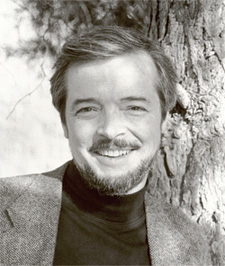Doremi's DC Post Great for 3D Work
The professional video industry's #1 source for news, trends and product and tech information. Sign up below.
You are now subscribed
Your newsletter sign-up was successful

Jay Spencer
SANTA MONICA, CALIF.—When a studio decides to convert a 2D motion picture into 3D, they have really launched into making a 2,000-shot visual effects picture. An ambitious release schedule, a project team of hundreds of people around the world, limited time availability of key decision makers and the director and producer working on another feature 2,000 miles from Hollywood all add to the challenge.
This was the case with Wes Cravenʼs "My Soul To Take," produced by Relativity Mediaʼs Rogue Pictures and distributed by Universal.
The production's stereographer, David Stump, ASC, was familiar with my work in digital cinema and post, and enlisted me in the project.
The domestic roll-out of DCI (Digital Cinema Initiatives)--based digital cinema began more than five years ago with a system designed to improve upon film. (DCI is the major studio consortium that developed the specification for digital cinema, much of which has since been codified in SMPTE standards.)
Some of us in these groups believed that if this work was done well, it could be extensible, interoperable and form a solid foundation on which media for many other platforms and uses could be built.
The opportunity here was to take this digital cinema technology, now dispersed across the country and adapt it to meet critical post-production approval needs in the field.
As part of the production process surrounding "My Soul To Take," a 3D theatre near Wes Cravenʼs location was booked for project collaboration, review and approval work.
CINEMA SERVER LIMITATIONS
I should note that while they're able to present excellent quality 3D picture and sound, a typical digital cinema video server is designed to start a show playlist and run reliably on an uninterrupted basis for hours. While this may be great for a finished movie presentation, it's really unacceptably cumbersome for a critical review process when repeating something a few minutes, seconds or even frames earlier could require returning to the start of the reel.
Enter the Doremi DC Post—a new cinema server with all the capabilities of the company's ubiquitous DCP-2000, along with the flexibility of the most nimble post production player. It's capable of fast forward and rewind, shuttle, jog, still frame, slo-mo and variable speed forward and reverse operations, with sync holding up to 200 percent.
REMOTE CONTROL TOO
Another great plus associated with this server system is the compact RCV-2 remote control head that we installed on the end of a 200-foot cable. This allowed me to sit with key review personnel in the "sweet spot" of the theatre to control playback operations.
Doremi needs to be credited for launching such a useful and progressive product that allows us to appreciate the future potential of the DCI spec and the DCP. The DC Post and Doremiʼs sales, production, and support personnel were completely "off the charts awesome" in meeting our needs under a very demanding schedule.
Jay Spencer is the managing director of Supernal Entertainment, a consulting firm specializing in the research and practical application of entertainment technology, content and business. He may be contacted at jay@supernal-net.com.
For additional information, contact Doremi Labs/Doremi Cinema at 818-562-1101 or visit www.doremicinema.com
The professional video industry's #1 source for news, trends and product and tech information. Sign up below.
